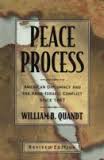Should we or should we not ally with Israel? While this is the primary question of the course, a related question is whether or not we should ally with the Jewish people.
Some would answer, quite summarily, that it depends on how Israel acts in the public square. Others would argue that it’s about much more than that. They might say it’s about a commitment to a “remnant people” who are trying to survive longstanding persecution. They might even say it’s about a biblical narrative that requires our allegiance if we want to be on the side of God. Others would take the opposing view: that a blind commitment to Israel, arguably America’s most consistent ally in the contemporary age, is discriminatory against Palestinians and insensitive to the situation on the ground in the Middle East.
In any case, we should not dismiss this as an unimportant matter. Many people living in the countries surrounding Israel are sworn to the destruction of Israel as a country and the Jews as a people. The conflict, as Dennis Praeger (a graduate from Columbia University) has observed, can be distilled to this commitment to Israel’s destruction and Israel’s unwillingness to relinquish its sovereignty and land claims established by the United Nations.
Version 1.5






_17422494921.png )

